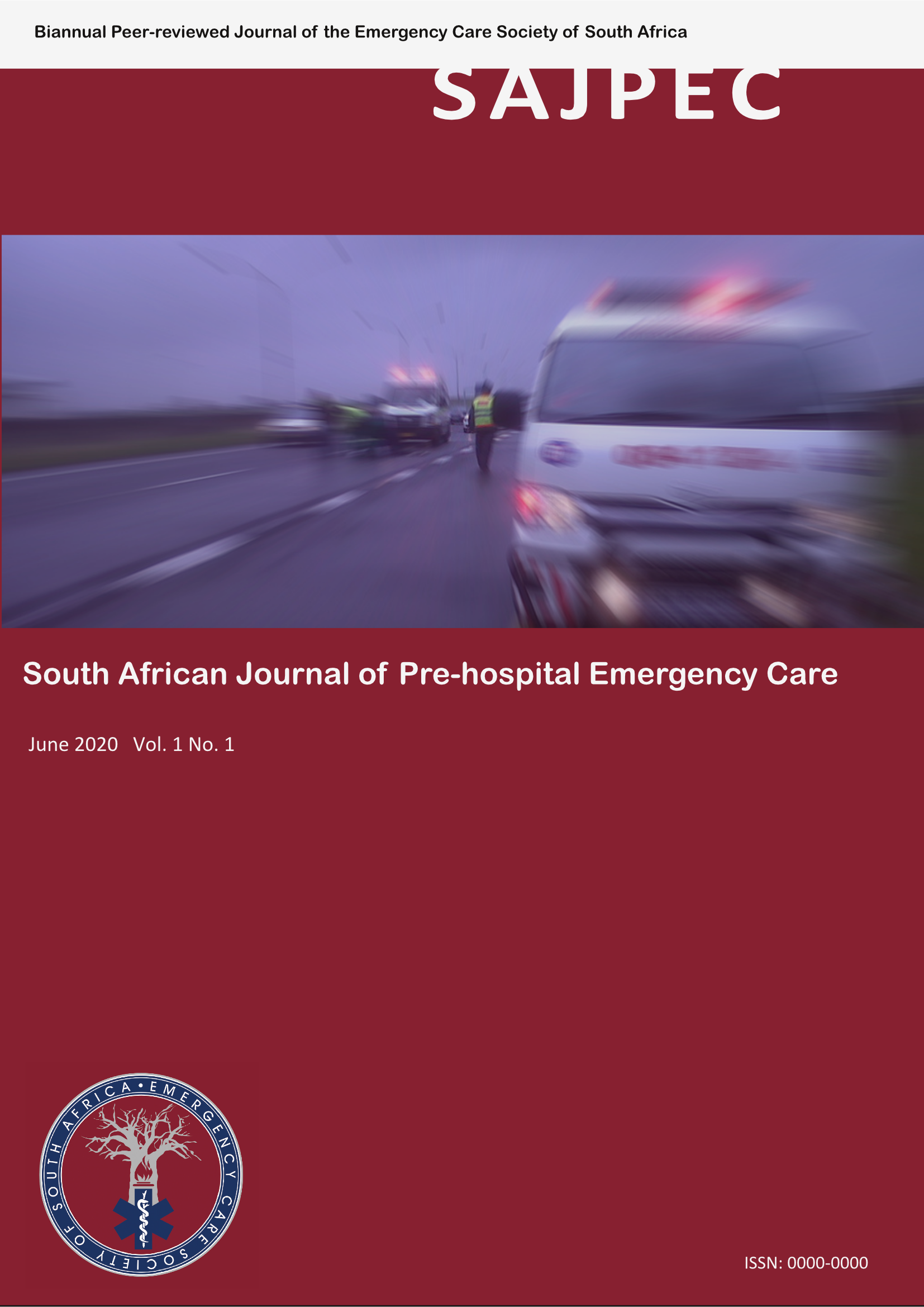Lifestyle risk behaviour of Emergency Medical Care workers in Nelson Mandela Bay, South Africa
DOI:
https://doi.org/10.24213/1-1-3626Abstract
Background: There are few prehospital emergency medical care (PEMC) workers in South Africa and the work environment is demanding, with irregular and long hours. The situation can result in elevated stress levels (especially among younger people) and risky lifestyle behaviour, which can lead to non-communicable diseases.Aim: This article reports on a pilot study that explored factors that influence lifestyle risk behaviour among PEMC workers, with a specific focus on dietary habits that may, in turn, have an influence on work performance.
Methods: An explorative, cross-sectional mixed-method pilot study was conducted. Focus groups, a lifestyle risk behaviour questionnaire and three 24-hour recalls for each participant were used as a convenience sample of 20 PEMC workers in a large South African city.
Results: Irregular shifts, financial constraints, smoking and the unavailability of healthy food emerged as important factors that contributed to lifestyle risk behaviour. In this group, the incidence of smoking was higher than in the general South African population, but binge drinking was the same. The study found that participants seldom met their energy, dietary fibre, vitamin and mineral requirements, and the intake of fat, saturated fat and refined carbohydrates was high.
Conclusion: Dietary interventions should be available for all PEMC workers, and the availability of a counsellor to assist workers in dealing with risky lifestyle behaviour could improve PEMC workers’ ability to perform their work. Further research is necessary in order to confirm these results and determine the need for specific interventions.
Downloads
Downloads
Published
Issue
Section
License
Authors grant the Emergency Care Society of South Africa the exclusive right to publish, display, reproduce and/or distribute the work in print and electronic format and in any medium known or hereafter developed, including for commercial use. Authors also agree that the Emergency Care Society of South Africa may retain in print or electronic format more than one copy of the work for the purpose of preservation, security and back-up.


